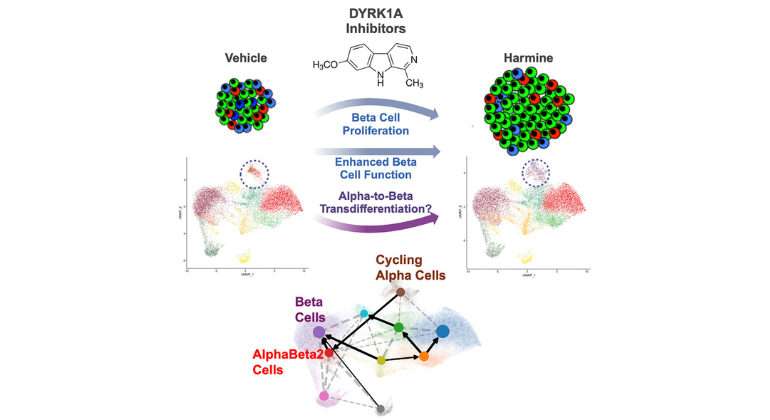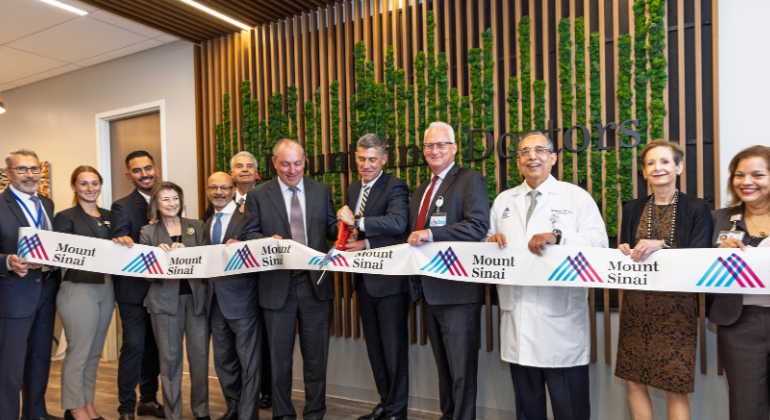Patients with AIDS at Increased Risk of Developing Age-Related Macular Degeneration
New Study Results Add to Growing Body of Research that HIV-Infected Patients May Experience Age-Related Diseases Earlier in Life
Patients with acquired immunodeficiency syndrome (AIDS) have a four-fold increase in their risk of developing intermediate-stage age-related macular degeneration (AMD) compared to people of the same age who are not infected with HIV, according to results from the Longitudinal Study of the Ocular Complications of AIDS (LSOCA) presented today at the 2015 ARVO Annual Meeting in Denver, CO. The results of the study, led by the National Eye Institute-funded Studies of the Ocular Complications of AIDS Research Group, were also published online in the American Journal of Ophthalmology.
“With HIV and AIDS patients living longer than ever before, they are at an increased risk of developing several age-related diseases at an earlier age than HIV-uninfected people including cardiovascular disease and diabetes,” said Douglas A. Jabs, MD, MBA, Professor of Ophthalmology and Medicine at the Icahn School of Medicine at Mount Sinai, and the lead author of the new study. “Their increased risk for age-related diseases in general led us to analyze how these patients are impacted by one of the most common age-related eye diseases, macular degeneration.”
AMD is the leading cause of visual impairment and blindness in people over 65 years old and is the result of damage to the central area of the retina called the macula, which is responsible for good central vision. AMD is described in stages – early, intermediate, and late – with vision loss occurring in late-stage AMD, either from atrophy or abnormal new blood vessels. HIV-uninfected persons with intermediate-stage AMD are at an increased risk of progressing to late-stage AMD, but typically do not have loss of vision from the AMD.
To determine how AIDS may contribute to AMD, Dr. Jabs and colleagues enrolled 1,825 patients ages 13-73 years with AIDS at 19 sites in United States between 1998 – 2011. The investigators graded retinal photographs for AMD and compared participants in the LSOCA cohort to published data on an HIV-uninfected, age-matched population from the Beaver Dam Offspring Study, which also graded retinal photographs for AMD features. The results showed that the prevalence of intermediate-stage AMD in patients with AIDS was nearly 10 percent and, when adjusted for any age differences, was approximately four-fold greater than that in the Beaver Dam Study.
The researchers also determined that the increased prevalence of AMD in the LSOCA cohort was not related to any drug or class of drugs used to treat HIV infection. Rather they point out that antiretroviral-treated, immune-restored, HIV-infected patients do not have normal immune systems; instead and on average they have immunologic changes similar to those seen in patients who are not infected who are older than 70 years of age, a phenomenon termed “immunosenescence.”
“Although the underlying mechanism leading to this increase in AMD in persons with AIDS is not yet known, it may relate to the state of chronic immune activation and systemic inflammation seen in these patients,” said Dr. Jabs.
Dr. Jabs and colleagues note that further exploration of these findings may provide the opportunity to better understand the roles of immunosenescence and systemic inflammation in the development of AMD, which in turn could lead new treatments. The results also add to the growing body of research suggesting that antiretroviral therapy-treated, immunorestored, HIV-infected persons may experience accelerated and accentuated aging.
About the Mount Sinai Health System
Mount Sinai Health System is one of the largest academic medical systems in the New York metro area, with 48,000 employees working across eight hospitals, more than 400 outpatient practices, more than 600 research and clinical labs, a school of nursing, and a leading school of medicine and graduate education. Mount Sinai advances health for all people, everywhere, by taking on the most complex health care challenges of our time—discovering and applying new scientific learning and knowledge; developing safer, more effective treatments; educating the next generation of medical leaders and innovators; and supporting local communities by delivering high-quality care to all who need it.
Through the integration of its hospitals, labs, and schools, Mount Sinai offers comprehensive health care solutions from birth through geriatrics, leveraging innovative approaches such as artificial intelligence and informatics while keeping patients’ medical and emotional needs at the center of all treatment. The Health System includes approximately 9,000 primary and specialty care physicians and 11 free-standing joint-venture centers throughout the five boroughs of New York City, Westchester, Long Island, and Florida. Hospitals within the System are consistently ranked by Newsweek’s® “The World’s Best Smart Hospitals, Best in State Hospitals, World Best Hospitals and Best Specialty Hospitals” and by U.S. News & World Report's® “Best Hospitals” and “Best Children’s Hospitals.” The Mount Sinai Hospital is on the U.S. News & World Report® “Best Hospitals” Honor Roll for 2024-2025.
For more information, visit https://www.mountsinai.org or find Mount Sinai on Facebook, Twitter and YouTube.

Mount Sinai Researchers Move Closer to a Cure for Diabetes
Dec 10, 2024 View All Press Releases
Mount Sinai and U.S. Anesthesia Partners Form Alliance to Support New Anesthesia Practice
Dec 05, 2024 View All Press Releases
Mount Sinai Health System Expands Care in Staten Island
Nov 04, 2024 View All Press Releases
Mount Sinai Nurse Hosts Hypertension Series in Harlem
Oct 28, 2024 View All Press Releases
The Tisch Cancer Institute Emphasizes Critical Role of BRCA Testing For All Genders
Oct 14, 2024 View All Press Releases


